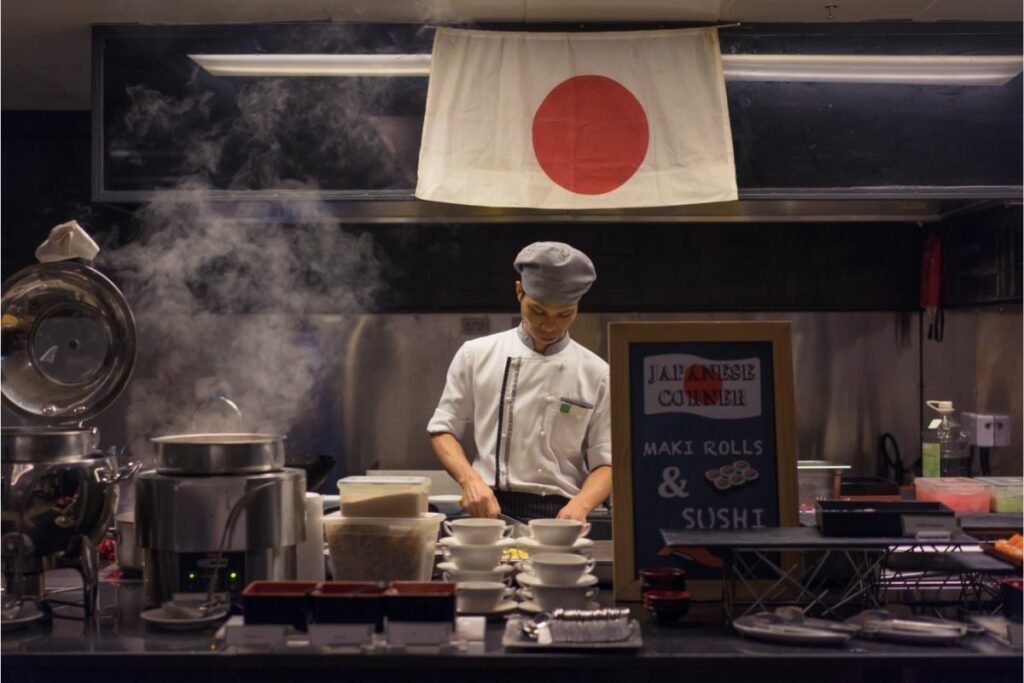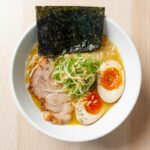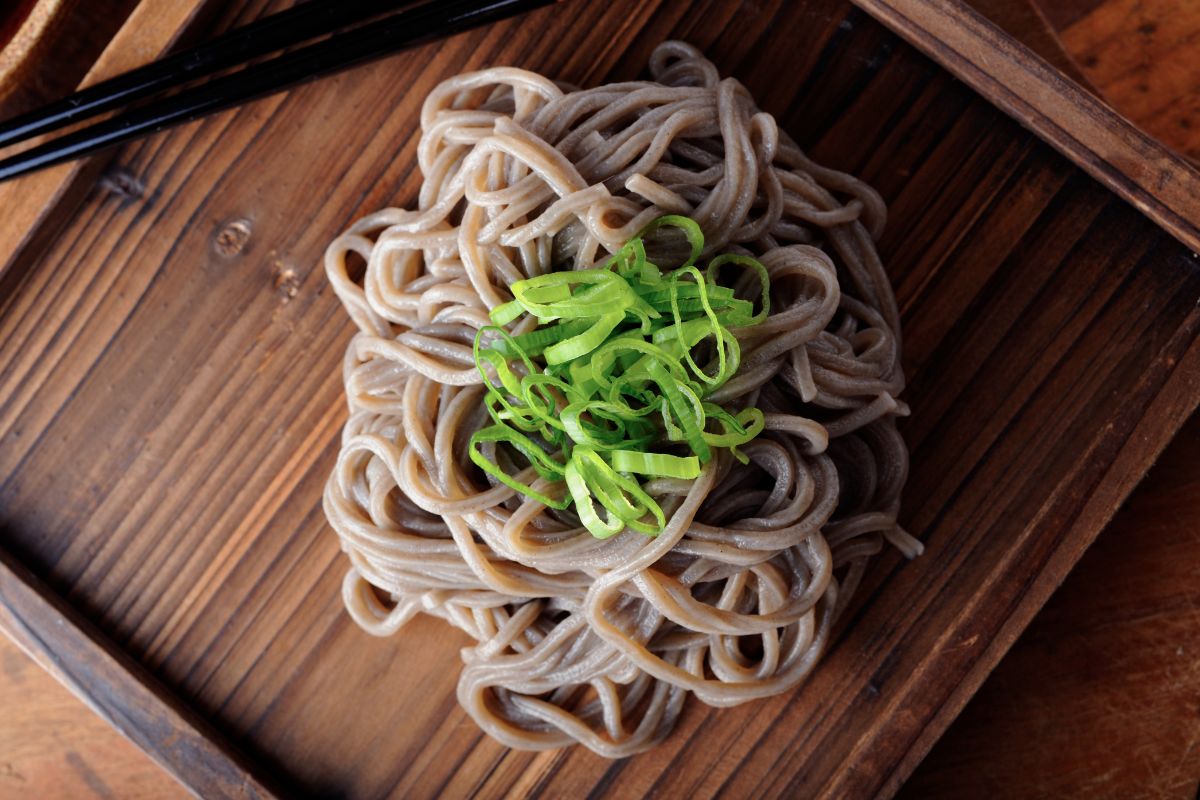Japanese cuisine is one of the most popular cooking styles worldwide. From Udon noodles to Miso soup to Sushi, there’s no debating that Japanese food is incredibly tasty.
But flavor aside, is Japanese food healthy? This is a question many fans of Japanese food ask themselves, and while there’s nothing wrong with enjoying a particular cuisine based on taste alone, it’s a good idea to know how nourishing a specific type of food is for your body.
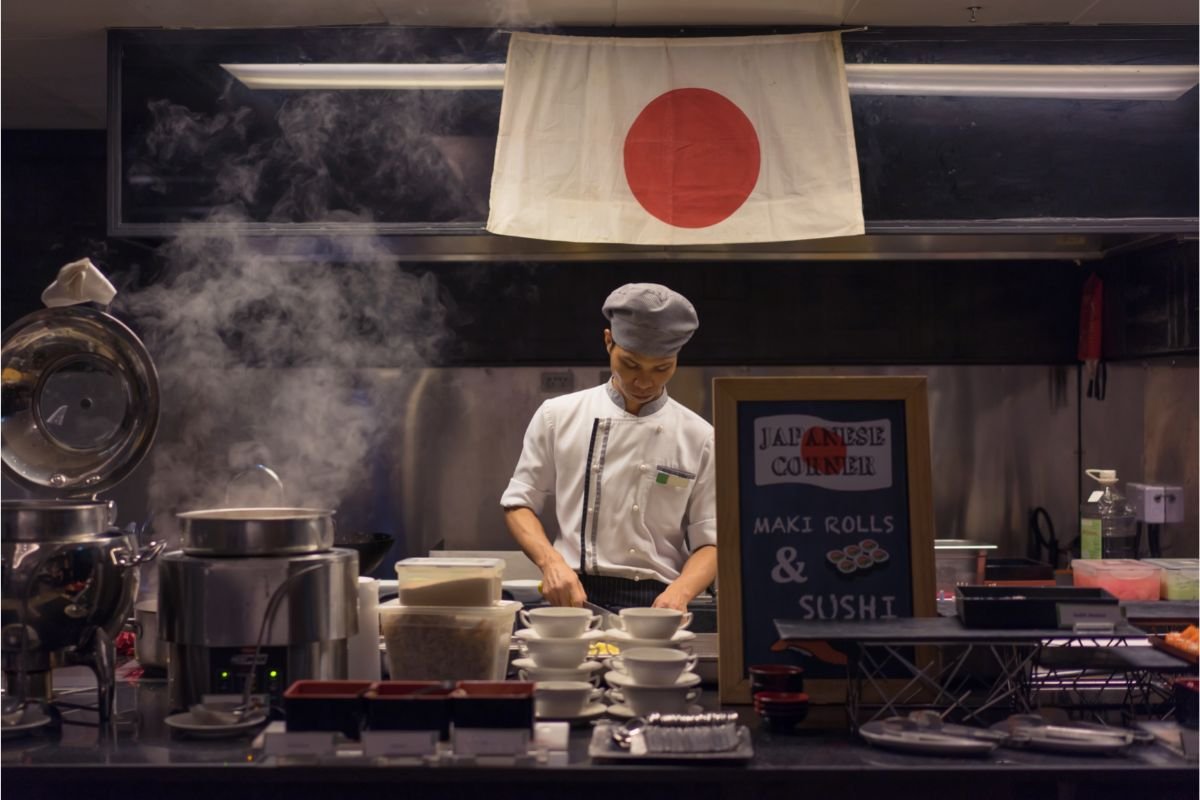
So, is Japanese food healthy? Read on to find out.
What Does ‘Healthy Food’ Mean?
Before we can establish whether or not Japanese food is healthy, it’s important to define what ‘healthy’ actually means in the context of food.
Generally, when people say that food is healthy, they mean that it contains at least a couple of important nutrients that your body needs to function properly. Additionally, healthy food should be low in the nutrients that aren’t so good for you, such as saturated fat or refined sugar.
Single food items, even healthy ones, are highly unlikely to provide you with all the essential nutrients you need. That’s why the term ‘healthy diet’ is used to refer to a diet that encompasses a combination of healthy foods in order to meet all of a person’s nutritional needs.
So, when we talk about whether or not Japanese food is healthy, we need to think about the Japanese diet as a whole in addition to the nutritional value of individual dishes.
Is Japanese Food Healthy?
Let’s address the big question: is Japanese food healthy? The answer is ‘yes’. Since Japanese cuisine contains a lot of vegetables and fish as well as fermented foods with impressive nutritional benefits, most nutrition experts agree that Japanese food is, overall, healthy.
Japanese food as a rule doesn’t contain a lot of refined sugar or highly processed ingredients. Unlike some other cuisines around the world, Japanese cuisine doesn’t include much fried food, with ingredients typically being fermented or smoked instead.
Some ingredients commonly used in Japanese cooking include tofu, soya beans, edamame beans and adzuki beans. Other staple foods in Japanese cuisine such as natto and miso are also made from soybeans.
There are plenty of superfoods in Japanese cooking as well, including seaweed, which is renowned for its health benefits.
Does Japanese Food Have Health Benefits?
In theory, it is clear that the Japanese diet is beneficial. But what effect does eating Japanese food regularly have on a person’s health?
Studies on Japanese life expectancy tell part of the story. Research has found that the place with the most centenarians worldwide is the Japanese island of Okinawa.
The people living in Okinawa also have the lowest incidence of age-related illnesses, including Alxheimer’s disease and some cancers.
While other factors are probably at play here, the long life expectancy and low risk of age-related disease in the people of Okinawa is a great testament to the health benefits of traditional Japanese food.
Other studies into the Japanese diet in general have found that people who mainly consume traditional Japanese food are less likely to suffer from heart disease or experience a stroke.
Life expectancy is higher overall when people consume a Japanese diet and obesity rates are much lower.
It is thought that the high fish and soy content of the traditional Japanese diet is the cause of this, as well as the fact that Japanese food is typically high in estrogen from plants as phytoestrogens.
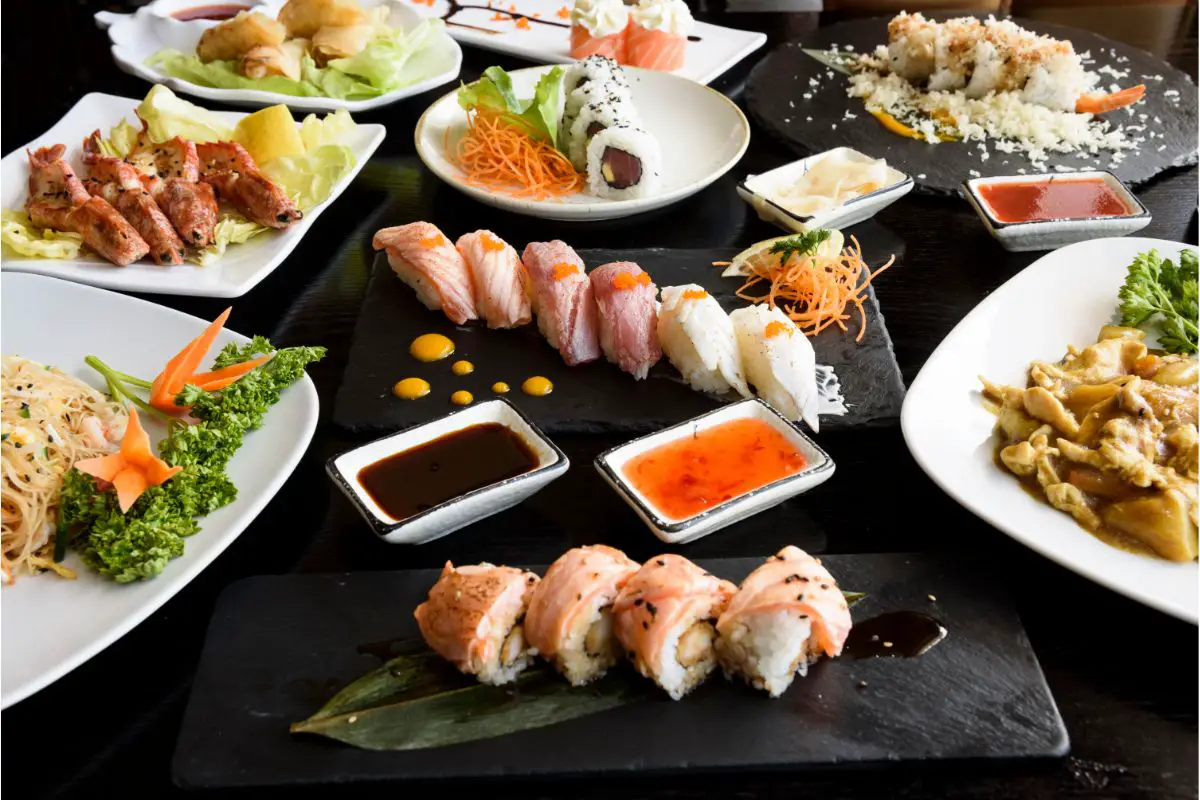
Examples Of Healthy Japanese Food
While the Japanese diet as a whole is considered healthy, some Japanese foods are definitely healthier than others.
Individual healthy ingredients that feature in a lot of Japanese cooking include tofu, sashimi, rice, oily fish, seaweed, miso, natto, and soba.
If you’re looking for healthy Japanese dishes to try, we recommend soba noodles, miso soup, and sushi (see also ‘What Are Somen Noodles?’). The great thing about sushi in particular is that it encompasses many healthy Japanese ingredients and there are so many different ingredient combinations to try.
Salmon and avocado is a classic with numerous health benefits.
Less Healthy Japanese Dishes
With any kind of cuisine, some dishes and ingredients are going to be less healthy and nutritious than others. Japanese food is no exception.
While following a traditional Japanese diet that prioritizes some of the beneficial ingredients listed above will be great for your health, there are some traditional Japanese dishes and foods you should either avoid or consume in moderation if your goal is to be as healthy as possible.
Dishes such as ramen, tempura, tonkatsu, and curry rice are all popular Japanese foods, but they may not be the best for your health. Tempura and tonkatsu are among the few deep-fried Japanese dishes, while ramen is high in fat, sugar, and sodium.
Even some of the healthier Japanese foods should be consumed in moderation if you want to maintain a healthy diet. For instance, miso soup, while it’s high in protein and low in calories overall, is high in sodium.
You should try to get less than 1,500 mg of sodium per day according to cardiovascular health experts.
Similarly, sushi can be high in sugar depending on the specific type of sushi, and while seaweed has many health benefits, consuming too much iodine (which is present in seaweed) has been linked to some types of cancer.
Final Thoughts
Like any cuisine, Japanese food is made up of healthy options and less-healthy options.
However, on the whole, nutritionists praise the Japanese diet for its health benefits due to the fact that it’s high in micronutrients from vegetables as well as lean protein and essential fatty acids from fish.
Japanese food that is high in plant oestrogens and phytoestrogens has been linked to a lower incidence of disease, and Japanese people have one of the longest life expectancies worldwide.
With that being said, you should moderate your consumption of deep-fried dishes like tonkatsu and tempura and pay attention to your sodium intake if you want to consume a healthy Japanese diet.

